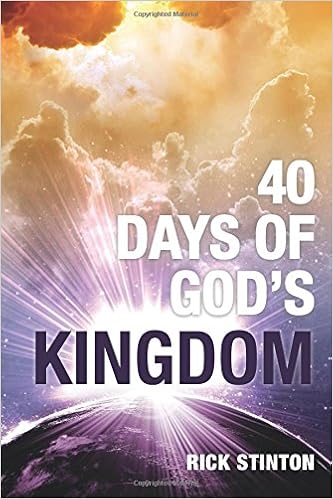 Over at Outreach Magazine‘s website, Perry Noble of NewSpring Church in Anderson, South Carolina, has an article “15 Signs Your Church Is in Trouble.” It’s worth reading.
Over at Outreach Magazine‘s website, Perry Noble of NewSpring Church in Anderson, South Carolina, has an article “15 Signs Your Church Is in Trouble.” It’s worth reading.
Normally, I advise to read the whole thing, but in order to respond to it, I’ll need to excerpt it. Noble explains the warning signs of a church on its way to losing its way.
His 15, with my responses following:
1. When excuses are made about the way things are instead of embracing a willingness to roll up the sleeves and fix the problem.
Translation: Old timers who love the church are hesitant to abandon the “way things are” to jump on another church fad or the “program of the month.”
Few things are more destructive to a church than leaders intent on ramming through an agenda.
There is a right way for changes and fixes. It is often slow, involves waiting on the Lord, and requires supernatural feedback. That way is taken too infrequently in today’s churches, resulting in high-falutin’ solutions to problems most didn’t see as problems, and which can derail a church.
Tread lightly and wisely here.
2. When the church becomes content with merely receiving people that come rather than actually going out and finding them…in other words, they lose their passion for evangelism!
Agree. The greater question: What does evangelism in the Twenty-Teens look like, and how do you stoke people for it?
3. The focus of the church is to build a great church (complete with the pastor’s picture…and his wife’s…on everything) and not the Kingdom of God.
You can’t build the Kingdom of God if no one knows what it is. And most people sitting in the seats are unclear. Heck, most leaders are unclear. Fix the lack of comprehension of the Kingdom first, then build that Kingdom.
4. The leadership begins to settle for the natural rather than rely on the supernatural.
I’ve written before that the leaders of most churches are running on the distant memories of long-past revivals. They’ve never seen a big supernatural move of God. You can’t rely on something you’ve not seen nor understand. Again, I’ve suggested before that church leaders in the U.S. just stop, drop to their knees, get their congregations on their knees along with them, and no one does ANYTHING new until God moves. THEN you can start relying on the supernatural.
5. The church begins to view success/failure in regards to how they are viewed in the church world rather than whether or not they are actually fulfilling the Great Commission!
I don’t think a lot of church leaders in America can tell the difference between the Great Commission and “success” in the eyes of the church world. See #2 above. This is especially true when one examines the quality of disciples being made. That we can’t seem to raise up future leaders from within our own congregations is a major flag here. Perhaps our standard of success is screwy.
Or perhaps we need to just stop talking about success entirely, because success in the church world starts looking more and more like quantity and not quality. Even then, when it is quality, quality easily becomes its own idol. Perhaps the ultimate answer is to stop peering down the block at other churches and instead discover what God considers progress for just our church alone. Then apply copious amounts of grace.
6. The leaders within the church cease to be coachable.
I would go even more simple than that. The problem with the upper leadership of large churches is not so much their lack of coachability but of approachability. One reason they aren’t coachable is that they’ve been walled off from the average guy in the pew. That average guy has ten layers of church bureaucracy and hierarchy between him and having lunch with the senior pastor. That kind of kingmaking hardens people. You can’t coach a stone.
7. There is a loss of a sense of urgency! (Hell is no longer hot, sin is no longer wrong, and the cross is no longer important!)
Agree–to a point. Some churches in America are on Rapture Watch 24/7/365; if Bibi Netanyahu gets a rash on his backside, they go into Harold Camping mode.
The problem is not a loss of sense of urgency, but a loss of sober consideration, both for the lost AND for the Church. We don’t need more hysterics brought on by ticking stopwatches. What we need are rational approaches to both reading the signs of the times AND carrying out the Great Commission WHILE coming under increased persecution. Christian Chicken Littles only ruin it for everyone.
8. Scripture isn’t central in every decision that is made!
Disagree entirely. There is not a decision made in an evangelical church in America that is not Scripturally justified. The problem: The decision is made by a select group of church leaders and then some verses are finagled as a stamp of approval. Too many decisions in our churches follow that inadequate model.
What we don’t see practiced are the admonitions of Paul in the Epistles for the entire church to come together and wrestle with tough decisions as a body of equally justified and uniquely gifted children of God. Instead, the average guy in the seats has his spiritual gifts sidelined and his voice silenced. How about we apply the actual Scriptures that encourage him to use his gift and voice as a blessing to the Body? Perhaps his understanding of the Scriptures as God reveals to him would take the decision in a different—but totally God-led—direction.
9. The church is reactive rather than proactive.
A church that is entirely natural and not supernatural can NEVER be proactive. Here is the rationalist church’s shame:
Now in these days prophets came down from Jerusalem to Antioch. And one of them named Agabus stood up and foretold by the Spirit that there would be a great famine over all the world (this took place in the days of Claudius). So the disciples determined, every one according to his ability, to send relief to the brothers living in Judea. And they did so, sending it to the elders by the hand of Barnabas and Saul.
—Acts 11:27-30 ESV
If God is not currently directing the Church in this same way, why even bring up being proactive? The Church can’t be. See #4 above.
10. The people in the church lose sight of the next generation and refuse to fund ministry simply because they don’t understand “those young people.”
???
Show me a church today that hasn’t thrown way too much money at youth ministry for way too meager results. Noble’s statement may have been true 40 years ago, but it’s not true today. If anything, I think we need to stop tossing cash at youth programs and re-evaluate the entire way ministry to people under 25 is done in America.
11. The goal of the church is to simply maintain the way things are…to NOT rock the boat and/or upset anyone…especially the big givers!
Pie in the sky. Until the Church in America ends its obsession with the coffers, it will be owned by those who fill them. Sadly, our model of successful church today demands huge cash reserves. You end the problem Nobel laments by moving money off center stage.
Meanwhile, I’ll be waiting over here by the strobe lights and the $25,000 digital mixing board for that to happen anytime soon.
See also #1.
12. The church is no longer willing to take steps of faith because “there is just too much to lose.”
If “too much to lose” means abandoning what is biblical, but not flashy, to adopt another faddish program or do what the church down the street is doing, then I can see why the average folks in the seats might dig in their heels.
Is it just me or is the message to pastors getting stronger that their congregants are the enemy of progress. That’s sick, when you think about it. No wonder those same congregants show up less and less often on Sundays.
13. The church simply does not care about the obvious and immediate needs that exist in the community.
This may be true. The horror stories abound.
Still, we have to understand that the Bible repeatedly puts the people in the church ahead of those in the community. Now the people in the church SHOULD be people from the community, but still. You have some churches that value everyone outside the church most, taking their attendees for granted, and this is bad too.
Balance, yes, but with a lean toward those inside the church walls.
14. The people learn how to depend on one man to minister to everyone rather than everyone embracing their role in the body, thus allowing the body to care for itself.
Until I see your average church service in an evangelical megachurch like Perry Noble runs move beyond 20 minutes of rock music worship, 10 minutes of announcements and miscellany, and a half hour message, I’m calling shenanigans. The entire way we do church stymies the real participation of 95% of folks who show up. The worst part is that concerned leaders who reiterate what #14 says are using models that only entrench that dependency. None are ready to let the people lead. They just aren’t. You don’t see a 1 Corinthians chapters 11-14-style church ANYWHERE in evangelicalism. Like I said, shenanigans.
15. When the leaders/staff refuse to go the extra mile in leading and serving because of how “inconvenient” doing so would be.
Really? Most people I’ve met who are on church staffs go the second mile all the time. I guess some slackers exist, but they are the minority. I think most church staff are routinely inconvenienced. All ministry is inconvenient because people are inconvenient.
What I don’t see happening: Church leaders on the national stage working actively to address the MANY aspects of American life, work, play, and culture that amplify those inconveniences. If anything, they (and we too) are leaving them status quo, which means nothing changes because they are afraid to take on the systems underlying the surface problems we see. In truth, I find that shortsighted and even cowardly. If we Christians don’t tackle the systems that imprison us, we will not go free.
*****
That’s my take on Noble’s 15 warnings. Please feel free to discuss in the comments below.
Thanks for reading.


 I think the biggest bullhorn of all may be the Internet, as it levels the playing field of truth and untruth. Now the deranged can have their loud voice too. Where it got weird for us is that some of the deranged rants proved to be correct, so now we’re not sure we want to believe anything immediately outside our sphere of understanding, if only to keep our sanity.
I think the biggest bullhorn of all may be the Internet, as it levels the playing field of truth and untruth. Now the deranged can have their loud voice too. Where it got weird for us is that some of the deranged rants proved to be correct, so now we’re not sure we want to believe anything immediately outside our sphere of understanding, if only to keep our sanity.